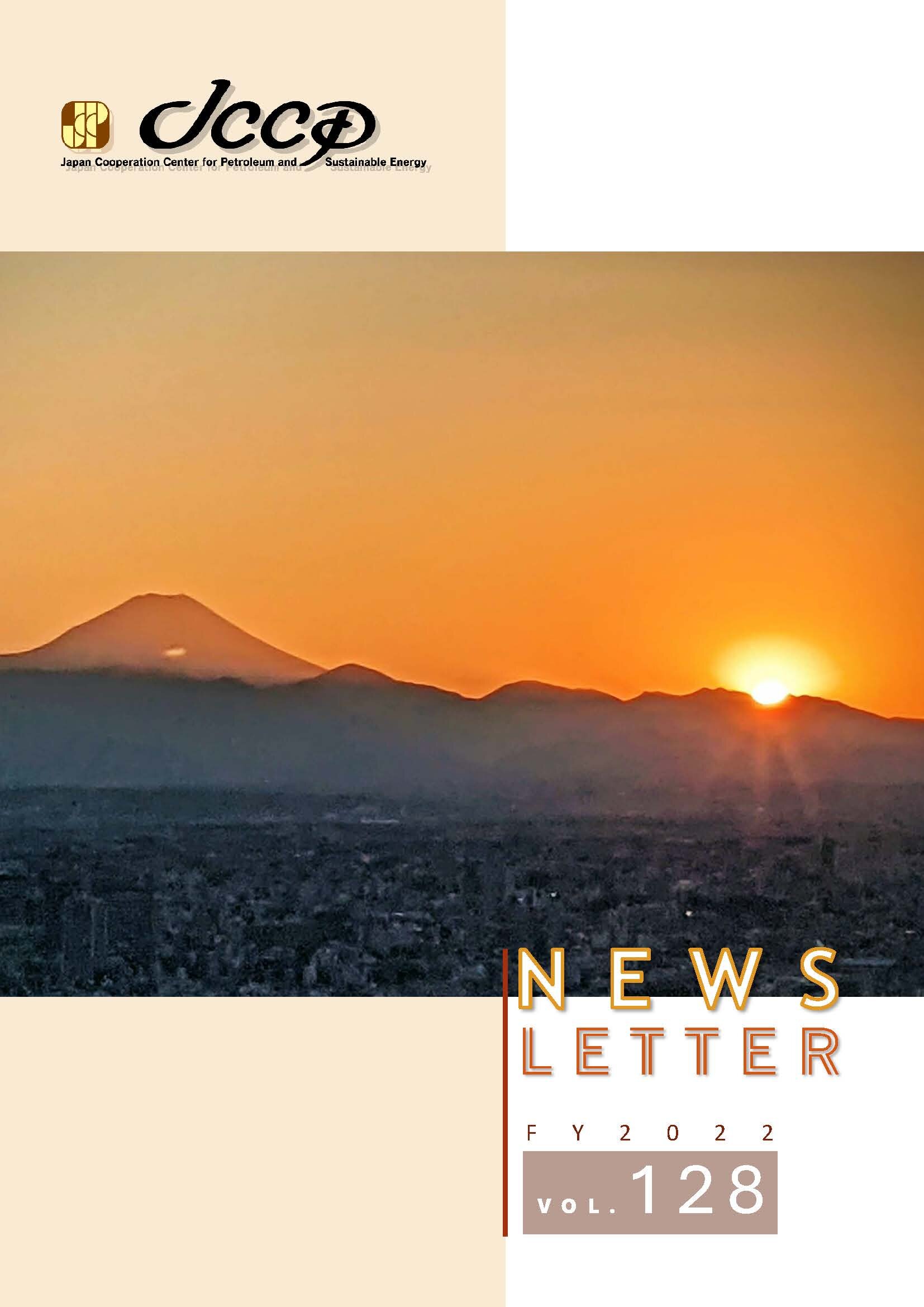
JCCP Activities for Fiscal 2022
In fiscal 2022, COVID-19 has finally begun to subside, and people’s interactions in relation to JCCP’s human resource development programs, Technical Cooperation Program and International Cooperation have gradually returned to pre-COVID levels. This has allowed us to conduct our activities efficiently, while continuing to take advantage of the characteristics and benefits of online communication.
With respect to the energy situation, Russia’s invasion of Ukraine in February has critically impacted the prices of crude oil and natural gas and has reawakened us to the importance of stabilizing the crude oil and natural gas markets to ensure stability of both global and Japanese economies. As an organization assuming a role in securing a stable supply of energy for Japan, we have become more acutely aware of the need to further deepen our cooperative relationships with oil-producing countries through JCCP activities.
At the same time, given the growing carbon neutrality movement and the need for an urgent response, we established the Sustainable Energy Department within our organization on July 1st, also in consideration of global environmental measures.
And on August 1st, we added the words “sustainable energy” to the name of our organization to clarify where we stand, and to emphasize both internally and externally that we are a flexible and dynamic organization. Carbon neutrality initiatives have accounted for a large portion of our activities in fiscal 2022, and we believe their presence will continue to strengthen going forward.
We also published a history of JCCP that looks back on the past 40 years of our organization. It not only tracks our achievements to date, but just as importantly, it sets the tone for how all officers and employees should join together to continue operations over the next four decades.
The 41st JCCP International Symposium was held, inviting speakers from overseas for the first time in three years. Approximately 600 people from the Ministry of Economy, Trade and Industry, oil- and gas-producing countries, embassies in Japan, government offices, private companies inside and outside of Japan, relevant organizations, etc. participated either in person or via live streaming.
The bi-annual meeting of the Friendship Committee for Women Career Development (FCW) was respectively held in UAE and Japan, with deeper discussions than were possible during the pandemic.
Details of each program are provided below.
Human Resource Development Programs
1. FY2022 summary
In fiscal 2022, in-person regular courses were resumed in response to strong requests from oil- and gas-producing countries, considering the gradual lifting of restrictions on movement and travel imposed during COVID-19. Although the three regular courses scheduled in May were held online, courses for June were held online with some in-person participants from overseas, and courses for August and thereafter were held completely in in-person format. Twenty-two regular courses were implemented directly by JCCP. They included three courses on strategic management and financial management, two on human resources, two on project management, one on carbon neutrality, two on supply chain management, three on instrumentation and DX for refinery, three on refinery facilities and LNG utilization technology, three on environment, quality, and safety management, and three on maintenance.
On the occasion of the establishment of the Sustainable Energy Department in July 2022, four customized courses on carbon neutrality were also offered, mainly to Middle East countries, in addition to the abovementioned regular courses on carbon neutrality. All were well received by the participants.
Through the transition from online to hybrid and to in-person format, consistent efforts have been made to enhance and increase the efficiency of regular courses.
More specifically, participants’ level of satisfaction in regular courses was increased by improving the implementation method of hybrid courses and by introducing participatory programs in the form of gamification and workshops to promote interaction among participants. 3D virtual reality materials were also used to incorporate the element of onsite visits that participants particularly seek.
In addition to regular courses, customized courses were implemented in response to individual requests from oil-producing countries in the Middle East and Southeast Asia. In fiscal 2022, 12 customized courses (including a course for female managers) were held for Saudi Arabia, UAE, Qatar, Oman and Vietnam, among a number of other countries. As a result, a total of 573 participants attended JCCP’s human resource development programs, including 440 participants in courses conducted directly by JCCP and 133 in corporate courses conducted in cooperation with member companies.
The breakdown of the number of participants to courses conducted directly by JCCP is as shown under “2. Completed Activities” below.
For the record, the cumulative total number of participants JCCP has received since its founding in 1981 had reached 27,019 by the end of fiscal 2022.
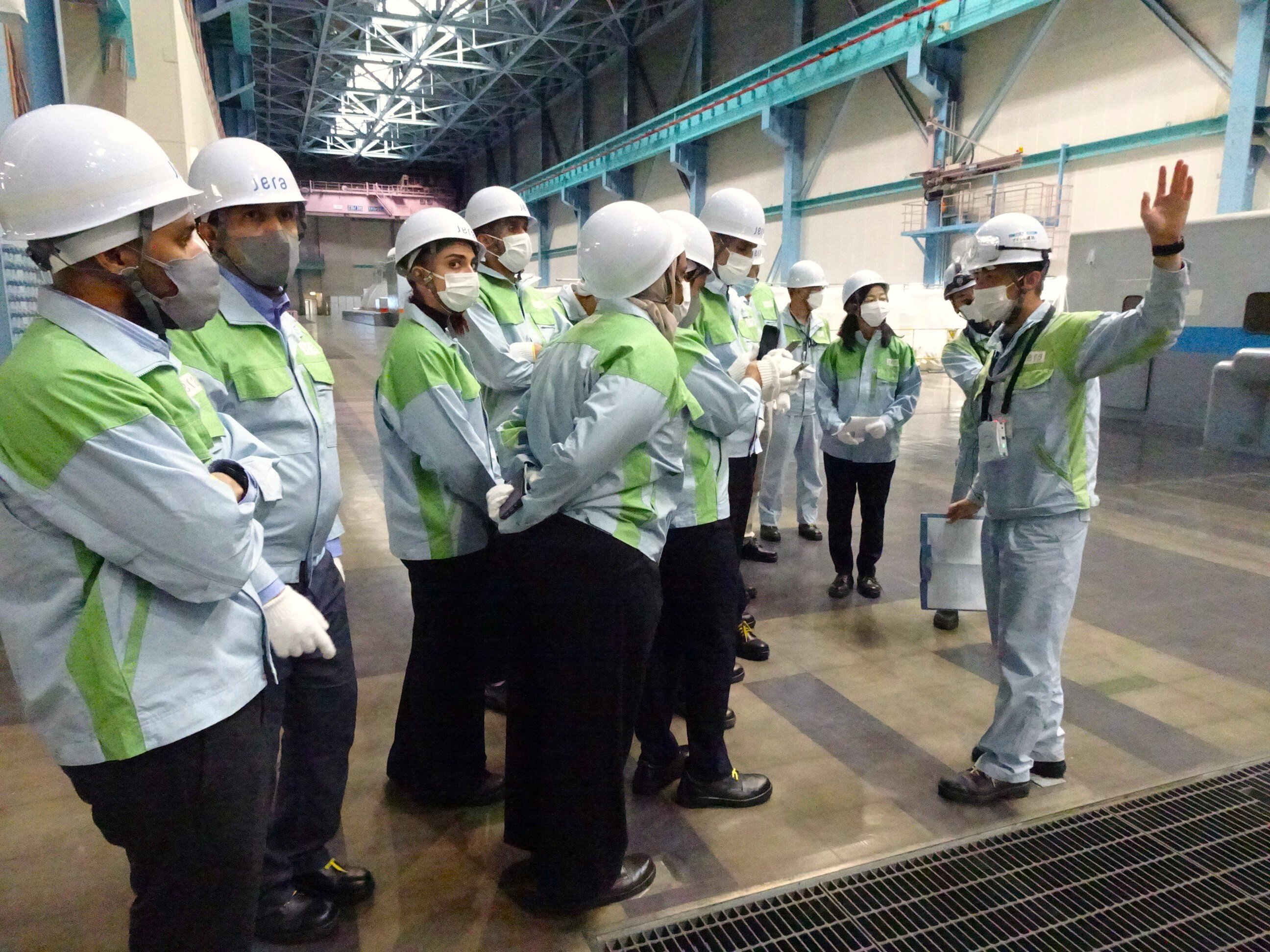
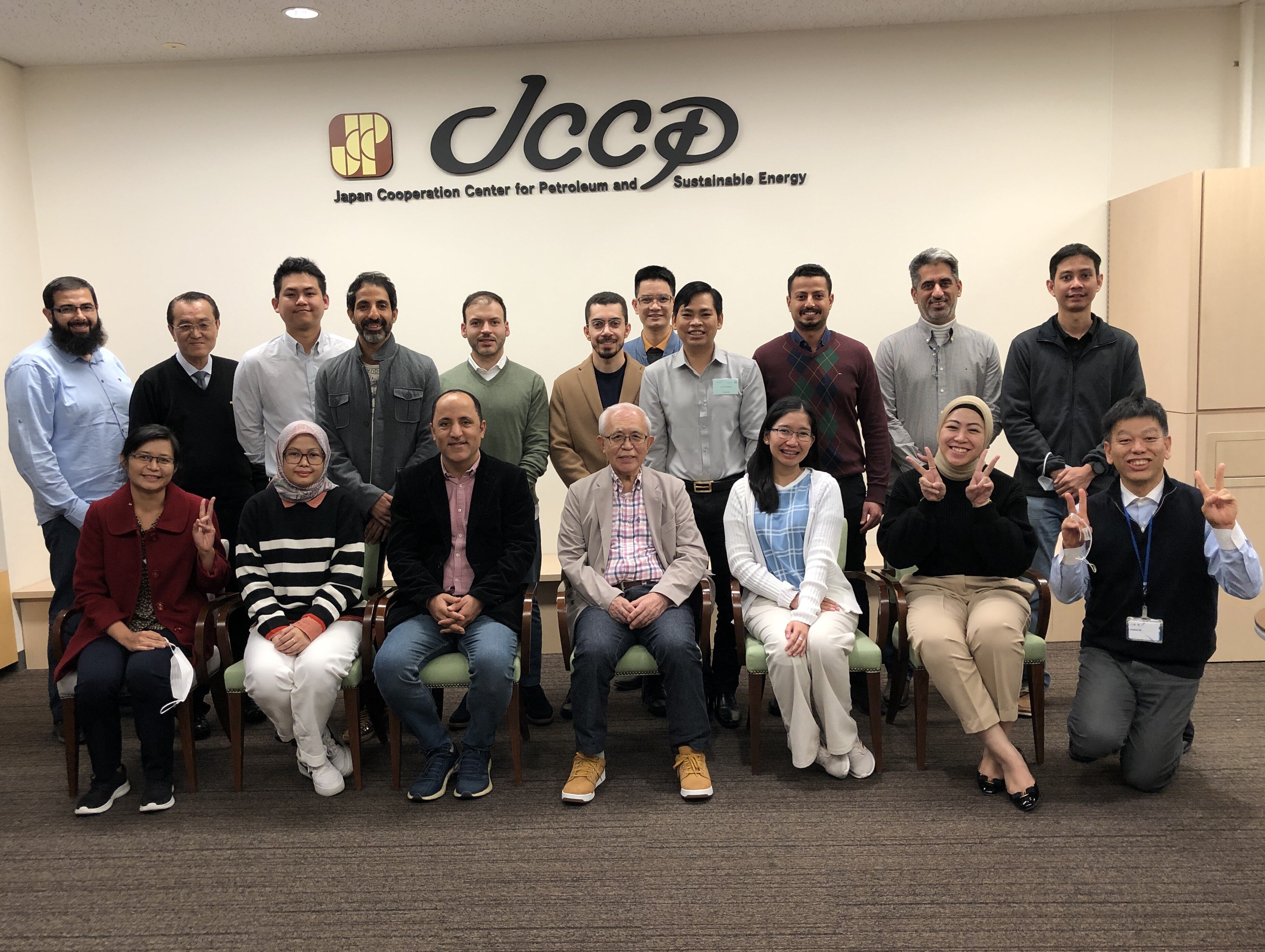
Petroleum Industries
The researcher exchange (invitation/dispatch) program is offered with the aim of developing researchers for the development of advanced technologies in the oil downstream sector in the future, by mutually sending and receiving researchers between oil- and gas-producing countries and Japan.
In fiscal 2022, one researcher each from the Petroleum Research & Development Center (PRDC) of the Iraqi Ministry of Oil and King Fahd University of Petroleum and Minerals (KFUPM) was received by a university research department and a research institute in Japan, through the researcher invitation program implemented on commission by The Japan Petroleum Institute (JPI). This was the first time since 2019 that researchers actually participated in-person in the program in Japan.
The two researchers engaged in their studies at their respective institution in Japan from January to February and received a certificate of completion following a results presentation at JCCP.
Meanwhile, the researcher dispatch program could not be implemented in fiscal 2022, as there were no requests for the dispatch of Japanese researchers from overseas research institutes due mainly to COVID-19. Instead, an online workshop for young researchers was held with the participation of five doctoral researchers from King Fahd University of Petroleum and Minerals, and one assistant professor and two doctoral researchers from Japanese universities. The participants deepened mutual exchanges through presentations on their respective research themes and engaging in questions and answers.
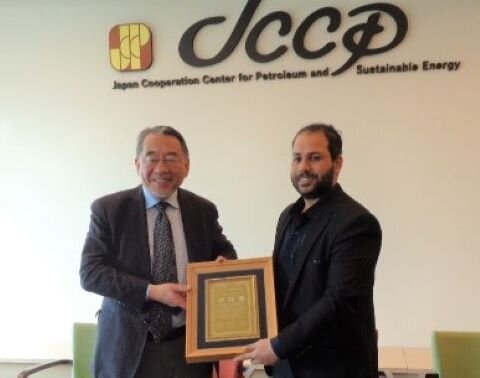 Researcher from Iraq, PRDC
Researcher from Iraq, PRDC
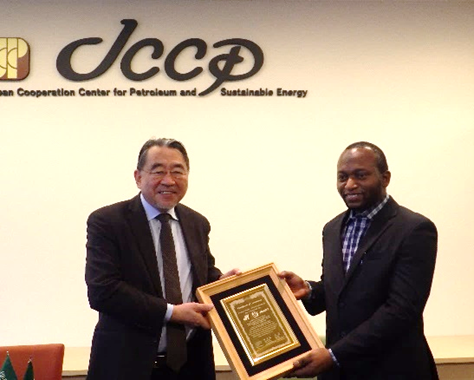 Researcher from KFUPM
Researcher from KFUPM
Technical Cooperation Projects
1. FY2022 summary
JCCP assists oil- and gas-producing countries in solving technical issues mainly in their oil downstream sector through the transfer of Japan’s technologies and expertise and the joint development and study of technologies in the form of technical cooperation projects. These projects are classified into three stages and implemented while carefully verifying their suitability at each stage.
In fiscal 2022, three first-stage project finding surveys (basic survey) were implemented in two countries; along with 11 second-stage feasibility studies (project formation study) in seven countries and 17 third-stage joint projects with oil-producing countries in eight countries.
It's noteworthy that six Memorandum of Agreement (MOA) were signed in fiscal 2022. A signing ceremony was held locally for five of the projects.
The six newly launched joint projects include the “Steam System Optimization Program (SSOP) Pilot Project in Saudi Aramco,” “Collaboration to Apply the Advanced Inspection Technologies for Saudi Aramco,” “Joint Project for the Enhancement of Oil Spill Response Abilities of ADNOC Group Phase Ⅱ (UAE),” “Joint Support with ADNOC Refining Research Centre & Quality Control Division (ARRC) for ADNOC Refining Refinery Operation (UAE) Phase III,” “Technical Collaboration for Operation Improvements in Bangchak Refinery,” and “Joint Project for the Treatment of Refinery Waste in Malaysia.”
With the COVID situation apparently coming to an end, practically all project meetings were held locally in-person, and researcher invitations have been resumed. Using the experience gained during the pandemic, in-person meetings and web conferences were combined to promote efficient operations.
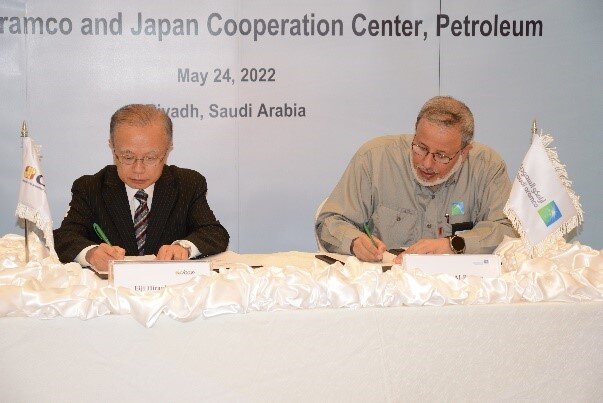 MOA signing ceremony with Saudi Aramco, May 2022. This was the first signing ceremony to be held in-person since the outbreak of COVID-19
MOA signing ceremony with Saudi Aramco, May 2022. This was the first signing ceremony to be held in-person since the outbreak of COVID-19
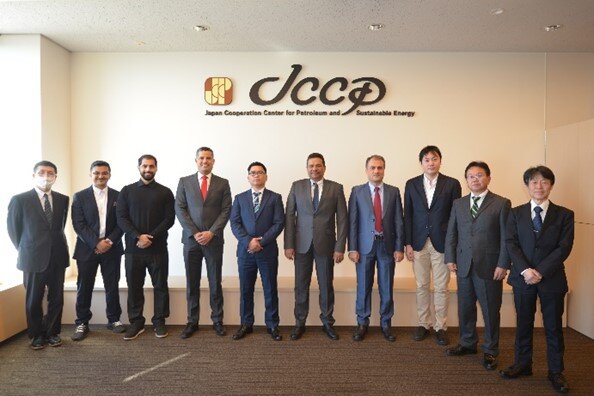 Saudi Aramco engineers who visited Japan to attend a worksho as part of the Exchange Project of good practice in refineries of KSA and Japan, January 2023
Saudi Aramco engineers who visited Japan to attend a worksho as part of the Exchange Project of good practice in refineries of KSA and Japan, January 2023
International Cooperation Programs
1. FY2022 summary
International cooperation programs aim to promote and strengthen information sharing, technical transfers and personal relationships through international conferences, networking meetings and other such activities.
[JCCP International Symposium]
The JCCP International Symposium has been held annually since JCCP’s founding, inviting leaders from oil- and gas-producing countries to deliver presentations along with executives of oil companies in Japan. Such countries are generally represented by minister- and vice minister-class executives of government agencies, management executives of national oil companies, and energy experts. Through the exchange of views and sharing of information among the leaders, the symposium casts light on issues that need to be addressed cooperatively toward Japan’s goal of securing stable supplies of oil and natural gas. It also provides a forum for personal exchanges toward maintaining and strengthening Japan’s relations with oil- and gas-producing countries.
Discussion themes focus on timely topics that take into consideration the environment and circumstances surrounding the oil and gas industries in that specific year. For example, past themes have included demand/supply changes brought about by sharp increases or decreases in population, the nationalization of core human resources in oil-producing countries, the shale oil and gas revolution, the falling prices of crude oil, and the need for further responses to environmental issues. More recent themes have included carbon neutrality, the surging prices of crude oil, and geopolitical issues.
In fiscal 2022, the 41st JCCP International Symposium was held on January 26, 2023, in an in-person format by inviting foreign guest speakers to Japan for the first time in three years. Some 600 persons either attended the venue or viewed a live-streaming webcast of the symposium. Featuring 17 speakers representing 13 countries, panel discussions probed into the main theme of the symposium on “Strategies and initiatives for oil and gas in times of global economic upheaval: Stable supply and green transformation.” Each panel provided the speakers and audience an opportunity to reconfirm their relationships of mutual cooperation and exchange views toward solving diverse issues.
In Leaders Panel 1, the theme of “Strategies and initiatives for oil and gas in times of global economic upheaval: Stable supply and green transformation” was discussed by government officials, representatives from oil companies in Japan and overseas, and energy experts, from both policy and business perspectives. In Leaders Panel 2, panelists discussed the theme of “Leadership and HR development responding to management strategies in times of change.” Focusing on human resource development and management, they each introduced their initiatives for the development of human resources as a common issue. In Leaders Panel 3, themed “Looking to the future with carbon management technologies,” panelists introduced carbon-related issues and specific technical development initiatives in their countries. By sharing the latest information and situation in each participating country, the panels cast light on common issues and deepened mutual understanding of each country’s policies and strategies.
Please see the following for details.
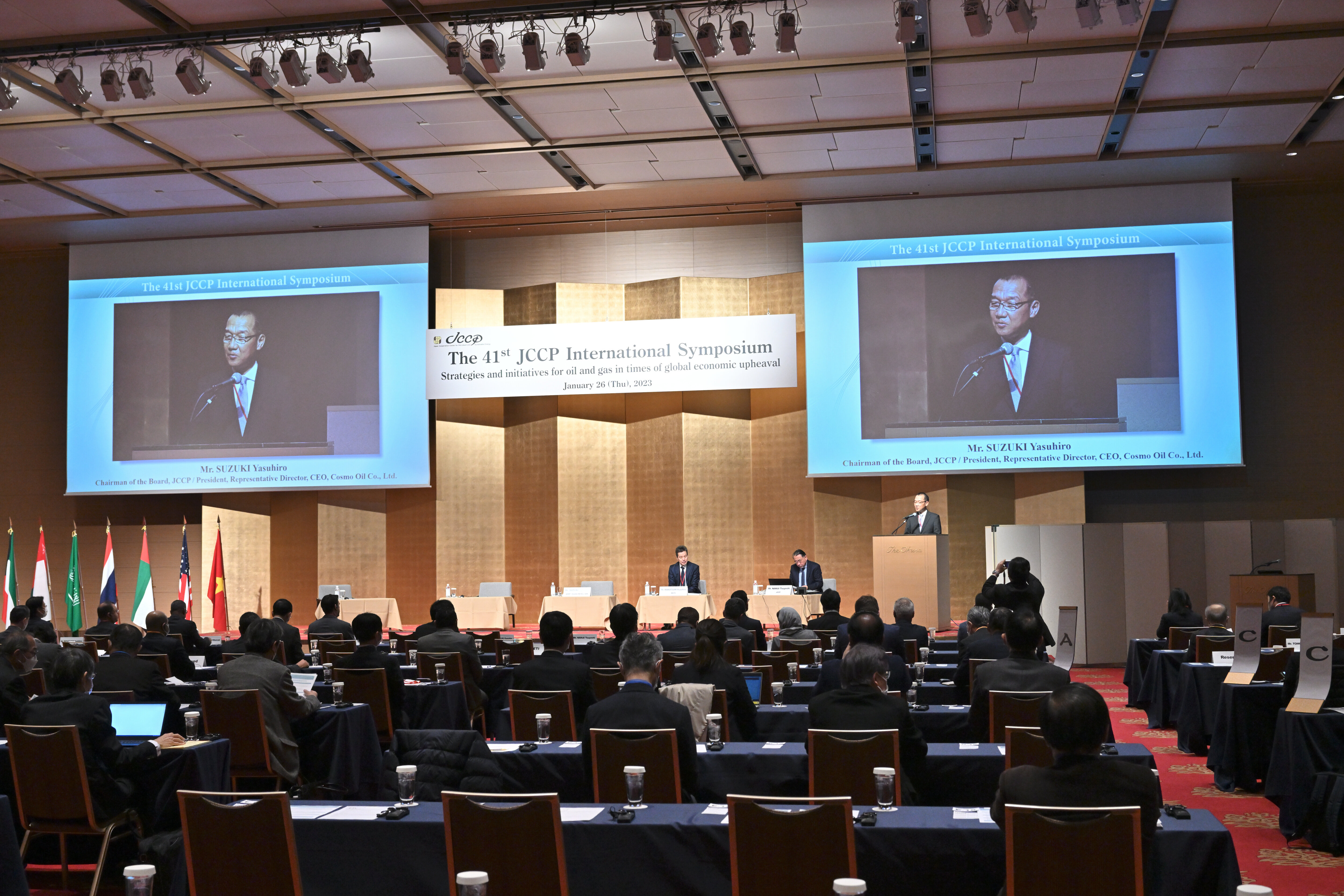
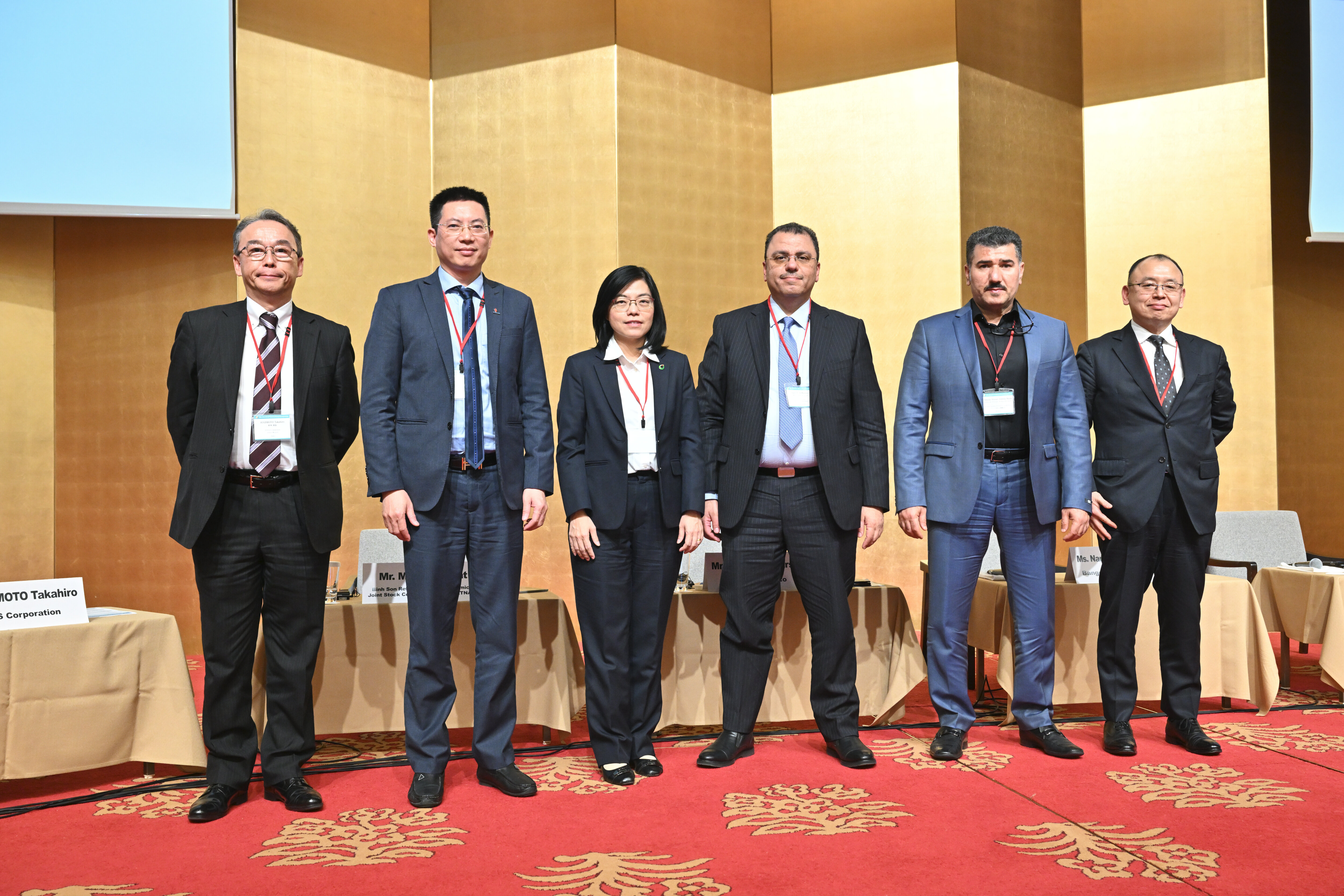
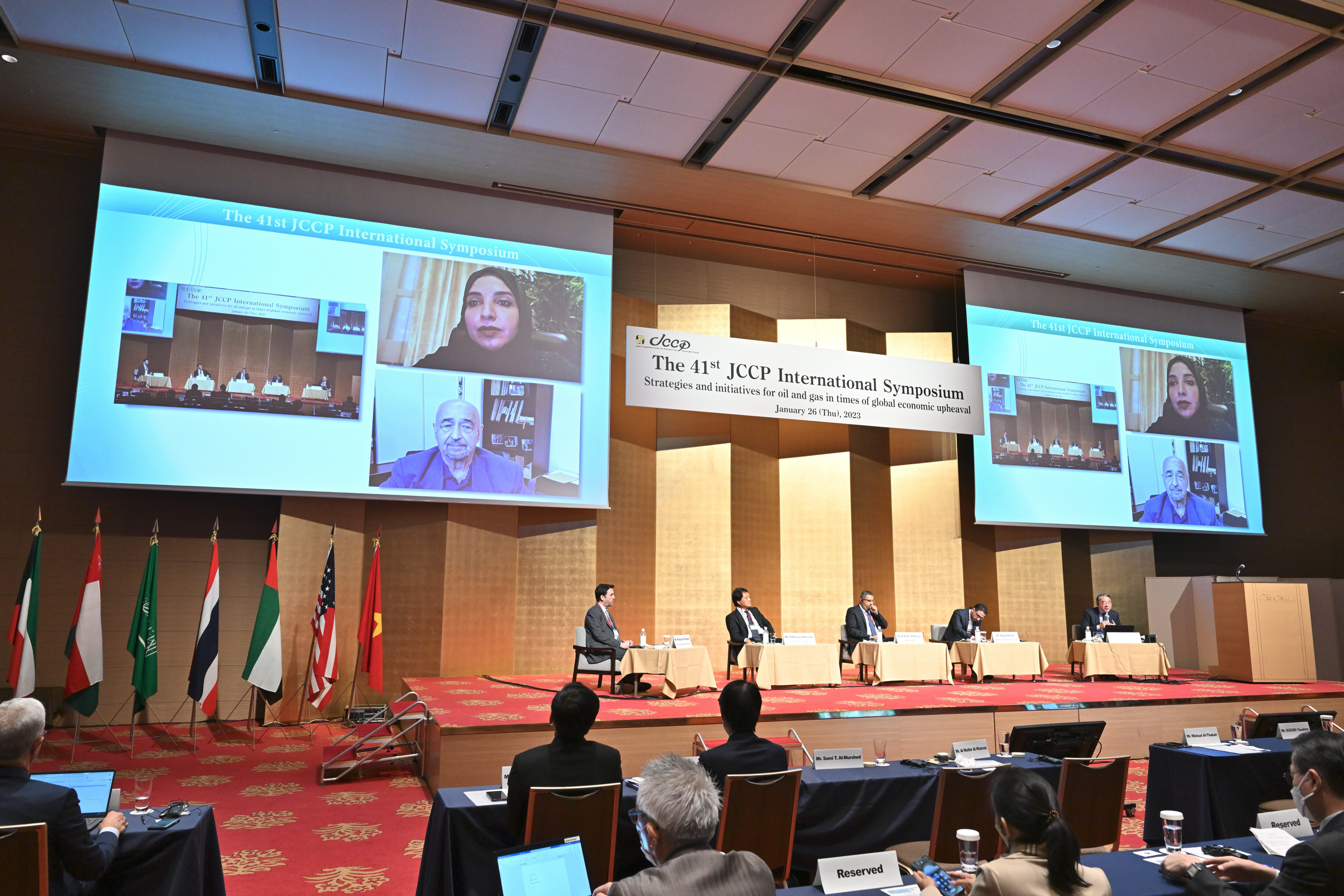
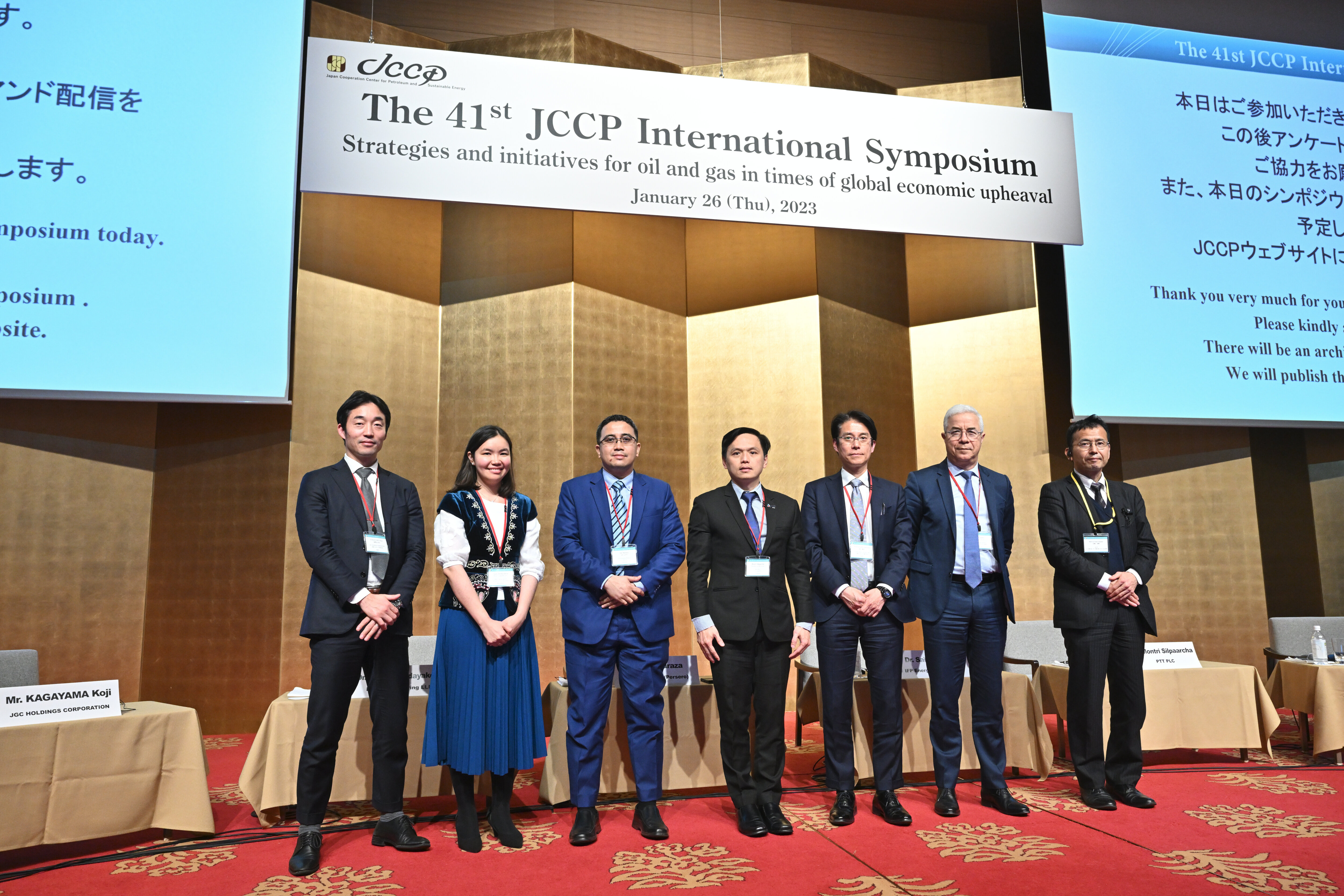
[Saudi-Japan Symposium (research / technology)]
The 31st Saudi-Japan Symposium (research / technology) was held on December 12 and 13, 2022 at KFUPM Dhahran Techno Valley in Saudi Arabia. It was co-sponsored by Saudi Aramco, King Fahd University of Petroleum & Minerals (KFUPM), The Japan Petroleum Institute (JPI), and JCCP. Under the theme of “Technology in Fuels & Petrochemicals,” it featured two keynote presentations, 19 general presentations (including five from Japan), and 10 poster sessions by young researchers. Active questions and answers were exchanged with the participation of over 140 audience members.
Prior to the symposium, a commemorative party for the 30th Saudi-Japan Symposium, which had been postponed since last fiscal year, was held at Mövenpick Hotel Al Khobar on December 11, with the attendance of approximately 100 guests from Saudi Arabia and local Japanese companies.
[JCCP-Saudi Aramco Joint Symposium]
On March 14 and 15, 2023, Saudi Aramco and JCCP held a joint symposium in Tokyo titled “Pathway to Sustainable Energy – Role of Technology Innovation & Prospects.” Featuring 21 presentations (including 18 from Japan) by policymakers and industry experts from think tanks, academia, and the manufacturing, engineering, and consumer sectors, it provided an overall view of the sustainable energy value chain. Approximately 220 participants engaged in an exchange of information on the future of petroleum refining and refineries in light of the views of experts from the oil, chemical, and automobile, marine transportation, aviation industries and technology providers. It is hoped that this symposium will hereafter become a forum for new collaboration between Saudi Arabia and Japan.
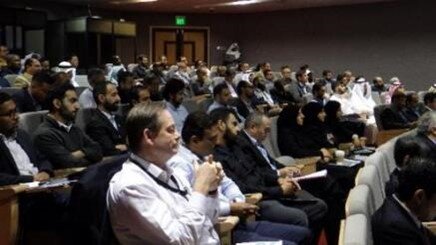 Saudi-Japan Symposium
Saudi-Japan Symposium
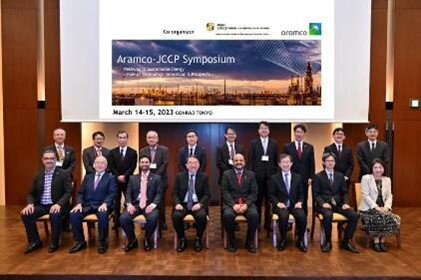 March 14, JCCP-Saudi Aramco Joint Symposium
March 14, JCCP-Saudi Aramco Joint Symposium
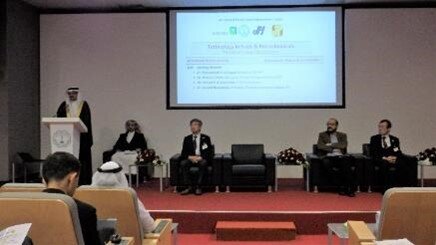 Saudi-Japan Symposium
Saudi-Japan Symposium
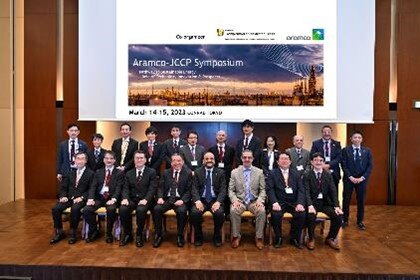 March 15, JCCP-Saudi Aramco Joint Symposium
March 15, JCCP-Saudi Aramco Joint Symposium
[FCW Forum]
The Friendship Committee for Women Career Development (FCW) was established in 2015 to promote women’s career development in UAE and Japan. As one of its activities, the FCW Forum is held annually to promote information exchanges.
In fiscal 2022, the 15th FCW Forum was held on November 16 under the theme of “Women in Management - empathy, enhancement and engagement.” For the first time in three years, those from UAE and other GCC countries were able to attend the forum in Japan in person, and a total of some 200 participants participated at the venue or via live-streaming webcast.
Prior to the forum, an awareness survey* was carried out on women who work in the oil and gas industries, which are on the verge of a major transition toward carbon neutrality by 2050 and are undergoing a structural reorganization to achieve sustainability. Based on issues derived from the results of the survey, speakers, panelists and participants put their heads together and discussed how they may expand their potential and contribute to a brighter future from the perspectives of “organizational revitalization” and “individual growth.”
[FCW: UAE-Japan Joint Survey]
As part of the activities of FCW*, a three-year joint survey was conducted in UAE and Japan with regard to changes in women’s ways of working amid COVID-19 and impacts and issues that have arisen in relation to women’s empowerment. The survey was designed in fiscal 2020, and field surveys and quantitative analyses were performed in fiscal 2021. In fiscal 2022, the findings were compiled into a survey report following a comparative analysis and study of the two countries, with cooperation from UAE University and Waseda University.
A survey on women working in the oil and gas industries was carried out with a focus on “Impact on Women Working in Oil & Gas Industry in UAE and Japan” and “A Comparative Study of COVID-19.” In Japan, it was carried out on men and women working in seven companies to which members of the FCW planning and executive committee belong, and in UAE it was carried out on women working in companies affiliated with the ADNOC Group. Responses were obtained from 2,347 individuals in Japan (1,885 men, 455 women, 3 others, 4 no answer) and 403 women in UAE.
In preparing the joint report, comparative observations were made exclusively between women in Japan and UAE (455 in Japan, 403 in UAE), and the findings were academically analyzed by a survey team composed of university professors in the two countries.
2. Completed Activities
Overseas Offices
JCCP has overseas offices in Al-Khobar, Saudi Arabia (Al-Khobar Office) and Abu Dhabi, UAE (Middle East Office). Each office is in charge of a group of Middle East countries. The Al-Khobar office is in charge of affairs in Saudi Arabia, Kuwait, Iraq and Bahrain, and the Middle East office is in charge of affairs in UAE, Qatar, Oman and Iran.
The principal roles of these overseas offices are to provide local support and to collect local information so that JCCP projects can be implemented in a smooth and safe manner in the countries under their charge.
They also support Japanese companies that do business in the oil downstream sector in Middle East oil-producing countries by leveraging the network that JCCP has established since its founding with national oil companies and other such organizations in those countries through the implementation of human resource development programs, technical cooperation projects and international cooperation activities.
In fiscal 2022, state-run oil companies in Middle East oil-producing countries have fully resumed in-person meetings with outside business partners after a prolonged period of suspension due to COVID-19. Thus, in addition to providing online business support, JCCP overseas offices engaged in support activities for the implementation of symposiums and other such events in those countries with relevant parties visiting from Japan.
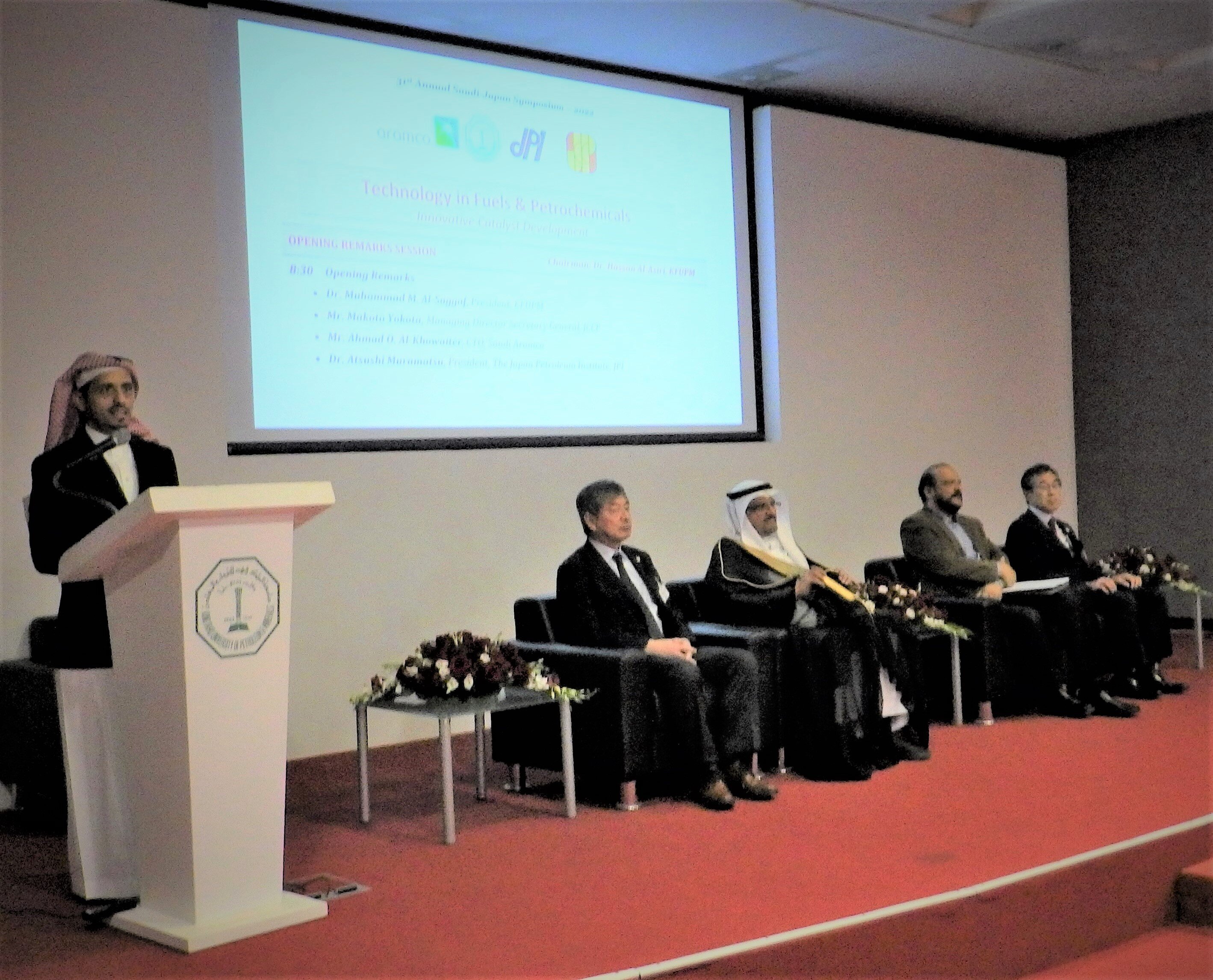 Al-Khobar Office
Al-Khobar Office
(31st Saudi-Japan Symposium)
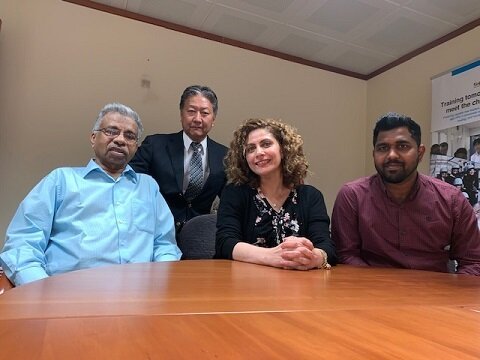 Middle East office
Middle East office

